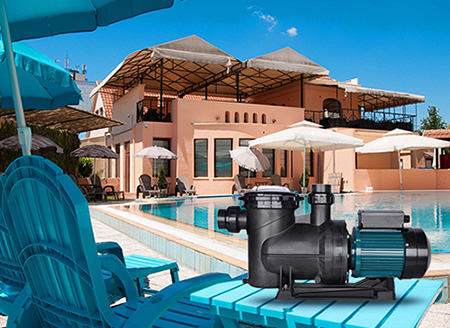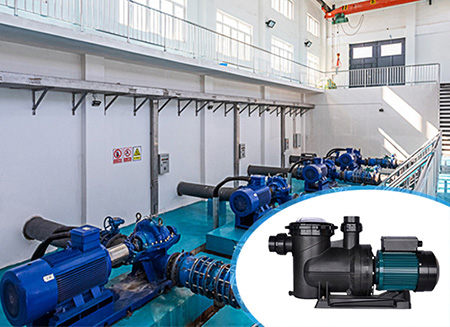How to Choose Pool Pump?
Choosing the right pool pump is crucial for efficient pool maintenance. Start by determining your pool's volume, which is the amount of water it holds. Measure the distance from the pool to the pump, as this affects the pump's ability to circulate water effectively. Consider the pump's flow rate, measured in gallons per minute (GPM), which should be sufficient to turn over your pool water at least once every 8 hours. Select a pump with a horsepower (HP) rating suitable for your pool size, keeping in mind that higher HP doesn't always equate to better performance; it should match the pool's needs. In this article, ATO automation will introduce how to choose a suitable pool pump.
Determine Pool Size and Volume:

The pool size and volume play crucial roles in determining the appropriate pool pump for efficient circulation and filtration. To determine the pool size, measure the length, width, and depth of the pool.
Selecting an appropriately sized pool pump ensures efficient water circulation, proper filtration, and optimal chemical distribution. Oversized pumps may lead to unnecessary energy consumption, while undersized pumps may compromise water quality and circulation. Regularly reassessing pool size and pump capacity helps maintain an effective and energy-efficient swimming pool system.
Select the Right Horsepower:

Selecting the right horsepower for a electric pool pump is crucial for efficient operation and energy savings. The horsepower (HP) of a pool pump determines its ability to circulate water effectively. Choosing the correct horsepower depends on the size of your pool and the specific needs of your filtration system.
For smaller residential pools, a 0.5 to 1.5 HP pump is generally sufficient. Larger pools or those with additional features like waterfalls or spas may require a pump with higher horsepower, ranging from 2 to 3 HP. It's important to strike a balance, as an oversized pump can lead to excessive energy consumption and unnecessary wear on the system.
In addition to these two more important points, there are a few more details that we need to pay attention to:
- Understand the Basics. Before delving into the selection process, it's essential to understand the basic components of a pool pump. A typical pool pump consists of a motor, impeller, and housing. The motor drives the impeller, creating suction that pulls water through the skimmer and main drain, then pushes it through the filter and back into the pool.
- Evaluate Flow Rate. The flow rate is the amount of water the pump circulates, while the turnover rate represents how quickly the pump can circulate the entire pool volume. A good rule of thumb is to aim for a turnover rate of 8 to 12 hours. Calculate the flow rate by dividing the pool volume by the turnover rate. Choosing a pump with an appropriate flow rate ensures efficient water circulation and filtration.
- Consider Noise Levels. Noise levels can impact your overall pool experience. If your pump is close to living areas or if you prefer a quieter environment, choose a pump with lower decibel ratings. Variable speed pumps, operating at lower speeds, are often quieter than traditional single-speed pumps.
- Evaluate Durability and Build Quality. The longevity of a pool pump depends on its build quality. Look for pumps with corrosion-resistant materials, durable seals, and robust housings. Stainless steel or thermoplastic components are preferable for longevity, especially in areas with harsh weather conditions.
- Check for Easy Maintenance. Regular maintenance is essential for optimal pump performance. Choose a swimming pool pump with easy access to the strainer basket and a transparent lid for visual inspection. Some pumps also feature a pressure gauge to indicate when it's time to clean the filter. Easy maintenance can save you time and effort in the long run.
- Compare Prices and Warranty. While cost is a significant factor, it's essential to consider the long-term savings from energy-efficient pumps. Compare prices, keeping in mind the potential energy savings over the pump's lifespan. Additionally, check the warranty offered by the manufacturer. A longer warranty period often indicates the manufacturer's confidence in their product's durability.
- Consult with Professionals. If you're unsure about the specific requirements for your pool, consult with pool professionals or experienced technicians. They can assess your pool's needs, recommend the right pump size, and provide valuable insights based on their expertise.
Choosing the right pool pump involves a careful consideration of factors such as pool size, flow rate, energy efficiency, horsepower, pump type, noise levels, durability, maintenance, pricing, and warranty. Taking the time to evaluate these factors will ensure that you make an informed decision, leading to efficient pool operation and long-term cost savings.

